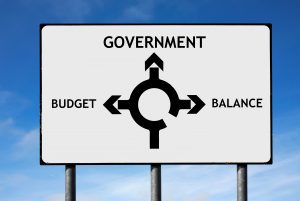Those of us who keep up with popular culture will remember that a couple of years ago, a band called Smash Mouth sang, “the years start coming and they don’t stop coming”.
(Actually, that song was released way back in the last century – a fact that proves just how perceptive the sentiment is.)

I don’t know about you, but I could do with a pause for breath. Brexit, Coronavirus, Ukraine, the energy crisis, the seemingly endless Conservative leadership election process… it’s all been a bit relentless. As recently as the end of August the UK had a different monarch, a different Prime Minister and a different Chancellor of the Exchequer – we are now on our third Chancellor since July.
If one of the compensations of age is wisdom, then we should all have all learned not to heed election promises. So, it was September’s ‘not-a-budget’ mini-budget that brought our first real experience of how Britain is to be reshaped under a Truss government and our first taste of Kwasinomics.
The Chancellor’s speech packed in more to just a few minutes than most full-blown budget speeches. This was no meek tinkering around the edges, this was a wide-ranging statement of policy direction that saw taxes slashed across the board.
Stamp Duty thresholds were raised, National Insurance and Income Tax were cut, and importantly a planned rise in duty on beer, wine and spirits was cancelled. IR35 rules will be simplified, and the OTS will be disbanded.
As a Capital Allowances specialist, it was the scrapping of the planned rise in Corporation Tax that caught my professional interest.
So often when Capital Allowances have featured in a Budget speech it’s been as an afterthought, or at best a handy headline-grabber. I’ve lost track of the number of times the Annual Investment Allowance has been proudly re-announced as something new. We’ve also been presented with poorly thought-through ideas such as Structures and Buildings Allowances, announced in advance of any consultation and attracting criticism as a textbook example of how not to develop tax policy.
However, back in March 2021 when Rishi Sunak announced the newly cancelled Corporation Tax rate hike, there was a rare moment of clarity and integration. It was realised that an increase in tax rate would create a disincentive to invest: why invest today for tax relief at 19% when you could invest next year and get tax relief at 25%?
To counteract this distortion, Sunak unveiled with a flourish the rather sexily named Super-Deduction (alongside its more prosaic cousin, the SR Allowance). This was grandly described at the time as “the Biggest Tax Cut in History” (“…hold my beer…”, thinks Kwasi Kwarteng…).
The Super-Deduction is a temporary 130% allowance that catapulted the UK straight to the top of the class in terms of investment incentives. But rather than being “the Biggest Tax Cut in History”, underneath the hype it was simply the removal of a disincentive. At a CT rate of 19% it gave a 24.7% cash saving – near enough to the 25% saving a 100% Allowance would give under the higher rate of CT.
Key here is the word ‘temporary’. The Super-Deduction was timed to expire just as the higher rate of CT kicked in, revealing to attentive cynics its true purpose.
I have rarely been alone in arguing that temporary tax incentives don’t work – and so it has proven with the Super-Deduction. It simply hasn’t yielded the increase in investment predicted. Businesses plan investment decisions years ahead, and snap incentives don’t give the certainty and stability needed for reliable medium- to long-range forecasting and financial modelling. Of course, businesses will take extra tax relief if it’s offered, but to act as a genuine incentive, a Capital Allowance needs to be permanent and reliable.
This is why it’s one of Kwarteng’s lower-key announcements that I predict will be most significant for stimulating investment. The Annual Investment Allowance (AIA) was due to revert to £200,000 from April 2023 but has now been set at a permanent £1m a year.
This is an easy and simple win that will have a big impact on investment decisions across the country. No longer will businesses face the cliff-edge of a sharply reducing AIA, which would have come with complex and draconian transitional rules that in extreme cases could see a headline rate of £200,000 translate to an effective AIA of less than £17,000.
The other major investment incentive announced in the mini budget was the introduction of Investment Zones. Along similar lines to Freeports and the spiritual successor of Enterprise Zones, IZs come with bonus Capital Allowances, namely a full first year allowance for Plant and Machinery, and with Structures and Buildings Allowances boosted from 3% to 20%. We don’t yet know the size, location or number of the Zones; and if or how this policy will be adopted by the devolved governments in NI, Wales and Scotland is still to be confirmed.
Nevertheless, these two initiatives show promise. They point to an understanding that investment incentives can form a key pillar in the UK’s fiscal policy. It’s imperative that they do so. International competitiveness, economic resilience and environmental policy aims can all be advanced by a thorough and integrated Capital Allowances policy.
A cohesive, long-term, strategic tax policy. That’s one change I really would welcome – but I won’t hold my breath.
[Views and musical taste are exclusively the author’s own]


